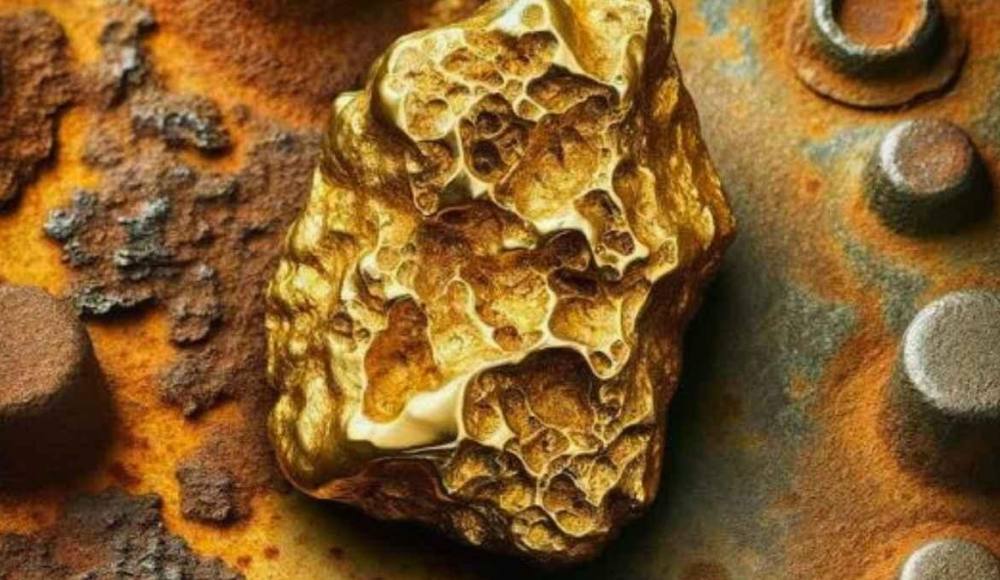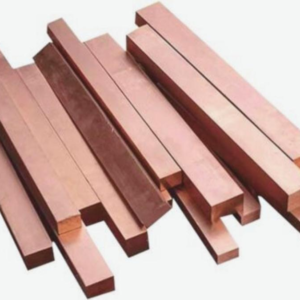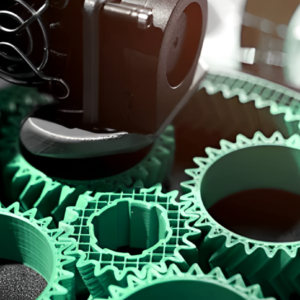El oro es un metal precioso.. Aunque la gente tiende a tener ideas erróneas sobre su dureza.. Principalmente me pregunto si el oro puede oxidarse o corroerse como lo hacen otros metales comunes.. Agradecidamente, el oro no se corroe, o 'óxido'. Debido a su inactividad química e incapacidad para oxidarse.. Una característica interesante que sitúa al oro en la categoría de los mejores materiales para joyería y múltiples usos.. Además, no se empaña. El conocimiento de estas características le permitirá valorar el oro por sus sorprendentes características., y por qué a la gente le sigue encantando.
¿Se oxida el oro??
Como se mencionó antes, El oro no se oxida como el hierro y otros metales.. La resistencia se debe a su estructura atómica inmutable, lo que la hace inactiva en condiciones de humedad.. Sin embargo, el crecimiento de impurezas o aleaciones puede estropearlo, y el oro puede desarrollar una capa de deslustre, que sólo afecta al oro no puro.
Comparación del deslustre del oro y la corrosión del oro
Aunque tanto el deslustre del oro como la corrosión del oro suenan similares. Suelen ser diferentes en su aparición.. El deslustre del oro normalmente ocurre cuando el oro entra en contacto con ciertos químicos.. Hace que la superficie cambie de color.. Esto suele ocurrir con aleaciones de oro de menores quilates.. En la mayoría de los casos, Los depósitos oscuros en los artículos de superficie dorada se eliminan fácilmente con la ayuda de una solución adecuada..
Si bien la corrosión del oro es una forma relativamente más ligera de ataque a su superficie. El ataque al oro es una forma agresiva de deterioro por agentes químicos o de severidad extrema.. Sin embargo, la corrosión puede debilitar la superficie, introducir muchos hoyos o hacer que el metal y su aleación se degraden.
Comprender estas características es esencial para el cuidado y almacenamiento adecuado de los productos de oro.. El deslustre se puede evitar mediante una limpieza regular y al mismo tiempo evitar una corrosión grave., El producto no debe exponerse a agentes corrosivos..
Cómo evitar que el oro se oxide o se deslustre
Evitar que el oro se empañe o se oxide implica varias prácticas simples pero efectivas:
- Elija oro de alto quilates: Elija oro que sea de mayor "pureza". En general, el 18 k o 24 K oro son opciones ideales, ya que es menos probable que se empañen.
- Mantenlo seco: No pongas joyas de oro en contacto con el agua.. Despegue antes de nadar, ducharse, o hacer ejercicio.
- Almacenar correctamente: Mantenga el oro en la oscuridad, seco, y preferiblemente en un joyero forrado de tela o en una bolsa para estar alejado del aire y la humedad..
- Evite los productos químicos: No exponga el oro a productos químicos fuertes utilizados en el lavado., perfumes, y loción ya que causan deslustre.
- Limpieza periódica: Limpie el oro con frecuencia con un paño suave y limpio para ayudar a eliminar la suciedad y las sustancias aceitosas.. Si la superficie se va a limpiar hasta cierto punto, también se puede aplicar una solución de jabón suave..
- Limitar el desgaste: Quítese las joyas de oro durante actividades que puedan rayarlas o no deben usarse en ambientes sucios como jardinería o ejercicio..
- Utilice tiras antideslustre: Se recomienda utilizar tiras antideslustre en la caja de almacenamiento para minimizar la humedad y evitar el deslustre del oro..
Por qué el oro no se oxida?
Ya que no se oxida por su naturaleza química.. El oro es un metal noble que suele tener una resistencia mejorada a la corrosión y oxidación.. También, no reacciona con el oxígeno ni la humedad del ambiente. La estabilidad se debe a su configuración electrónica que carece de la capa más externa, lo que da lugar a la forma de óxidos responsables de la oxidación de metales como el hierro..
Cuando se mezcla con otros metales, El oro de alto quilates todavía tiene la característica de no corroerse fácilmente.. En cuanto a las impurezas en el oro de menores quilates, pueden corroerse., el oro en sí no se ve afectado. Esta característica hace que el oro sea muy valorado por su apariencia y pureza para realizar aplicaciones como joyería y muchas otras actividades..
Preguntas frecuentes
Q1. ¿Se oxida el oro??
No, el oro no se oxida. Es químicamente inerte y no oxigena los productos.. Esta cualidad hace que conserve su nuevo aspecto..
Q2. ¿Qué causa la oxidación en los metales??
El acero inoxidable se oxida cuando se mezcla con oxígeno y se forma humedad en su superficie.. Estos pasos dan como resultado la eliminación destructiva de capas de la superficie del metal.. Prefiere el hierro y sus aleaciones como materiales base principalmente porque el metal oxidado no puede ser atacado por el electrolito..
Q3. ¿Todos los tipos de oro son resistentes al deslustre??
Karatage se refiere a la cantidad de oro en una aleación.. El oro de mayor quilates tiene menos probabilidades de empañarse, y viceversa.
Q4. ¿Puede el oro corroerse con el tiempo??
El oro en su estado natural es relativamente inmune a los procesos de corrosión que ocurren en otros metales.. Todavía, es sensible a productos químicos agresivos que pueden causar daños graves.
Q5. ¿Cuál es la diferencia entre deslustre y óxido??
El deslustre determina un cambio de color en la superficie de los metales.. El óxido significa que la estructura se debilita y se degrada.. Ambos cambian de look pero en diferentes aspectos..
Q6. ¿Cómo puedo evitar que el oro se empañe??
El oro debe almacenarse en un lugar fresco y seco.. Por lo tanto, Es importante no exponerlo a productos químicos o humedad.. También se puede limpiar periódicamente para mantener su brillo todo el tiempo..
P7. ¿Cuál es el punto de fusión del oro??
El golf tiene un punto de fusión de aproximadamente 1,064 grados centígrados (1,947 grados Fahrenheit). El alto punto de fusión se atribuye a que este compuesto tiene un enlace metálico..
P8. ¿Cómo afecta la aleación al oro??
La aleación de otros metales con oro puede alterar el tono del oro y su brillo.. La alta aleación promueve una menor resistencia al deslustre que un material con menor contenido de aleación..
P9. ¿Qué método de limpieza es mejor para el oro??
Se debe utilizar un paño suave para limpiar el oro con frecuencia.. También se puede utilizar agua del grifo con champú para lavar la suciedad, ya que es menos abrasivo que el jabón.. No utilice detergentes fuertes ya que pueden causar abrasión en la superficie del producto dorado..
Q10. ¿Por qué se utiliza el oro en la electrónica??
Los componentes electrónicos requieren materiales con buena conductividad eléctrica.. El oro es el mejor conductor de la electricidad.. Tiene baja corrosividad, de ahí su capacidad de servir por mucho tiempo sin verse afectado.. Todas estas cualidades hacen que los dispositivos sean más fiables para fines electrónicos..



